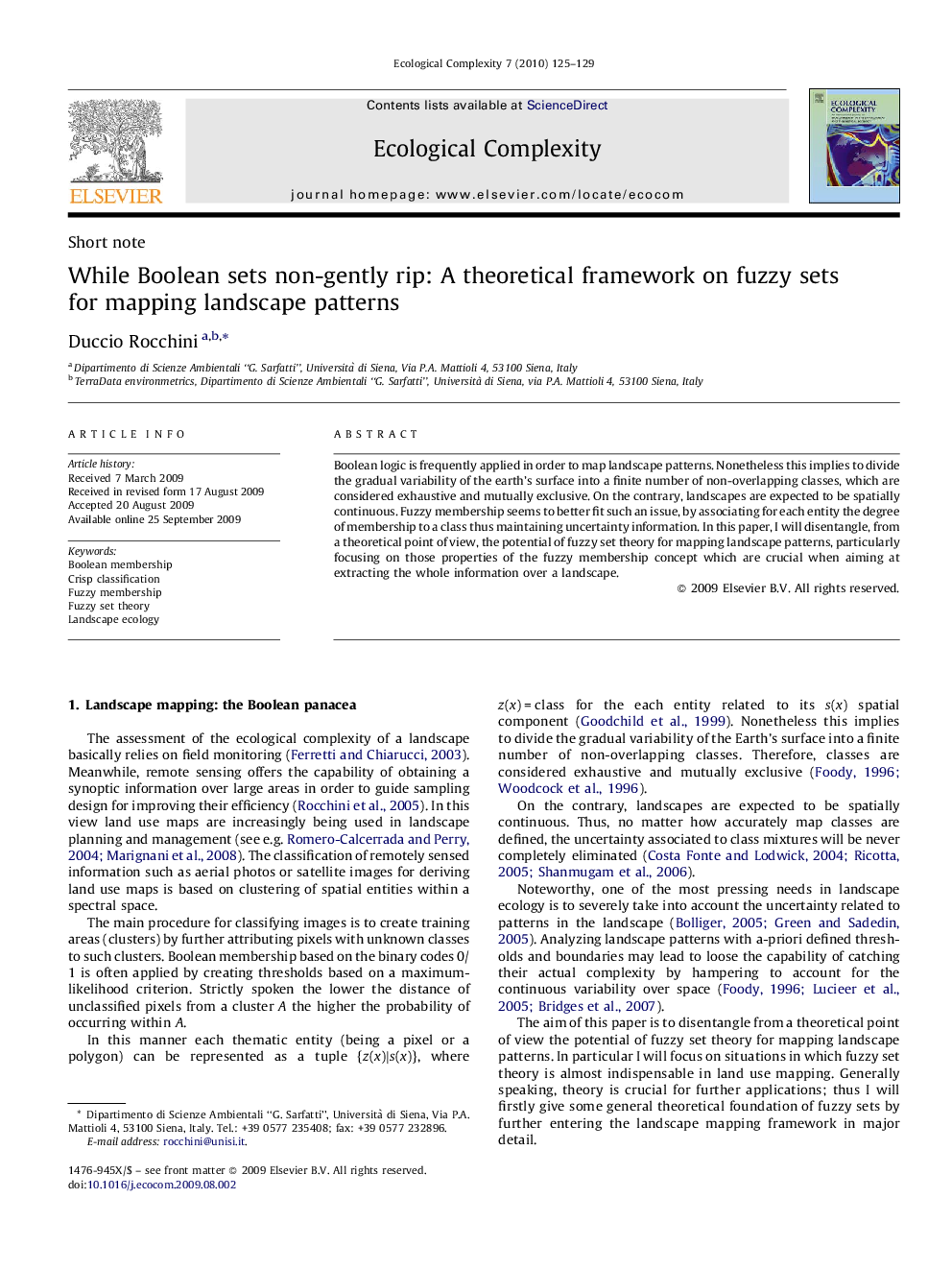| Article ID | Journal | Published Year | Pages | File Type |
|---|---|---|---|---|
| 4372656 | Ecological Complexity | 2010 | 5 Pages |
Boolean logic is frequently applied in order to map landscape patterns. Nonetheless this implies to divide the gradual variability of the earth's surface into a finite number of non-overlapping classes, which are considered exhaustive and mutually exclusive. On the contrary, landscapes are expected to be spatially continuous. Fuzzy membership seems to better fit such an issue, by associating for each entity the degree of membership to a class thus maintaining uncertainty information. In this paper, I will disentangle, from a theoretical point of view, the potential of fuzzy set theory for mapping landscape patterns, particularly focusing on those properties of the fuzzy membership concept which are crucial when aiming at extracting the whole information over a landscape.
